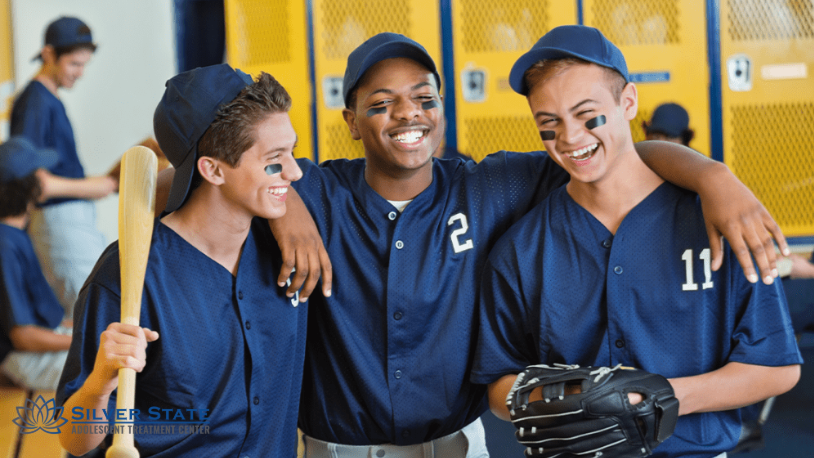Why Hobbies Matter in Teen Youth Residential Treatment Centers

Table of Contents
Why Hobbies Are Critical For Teens in Youth Residential Treatment Centers
Key Takeaways
- Hobbies help kids and teens modify their behavior and provide an effective way to manage stress.
- Hobbies in juvenile residential treatment center programs help kids be creative, learn new skills, and be strong.
- Adding fun activities to your life can make you feel better, help you become more independent, and foster stronger relationships with others.
- Studies suggest that structured activities can boost mental health and help teens in treatment centers achieve better outcomes.
- Families and communities can support teens in residential care by prioritizing both therapy and regular activities.
Introduction
Anxiety, trauma, and mental health problems can make daily life hard for many adolescents. Structured activities at youth residential treatment centers offer not just therapy but also vital opportunities to engage in hobbies that foster confidence and personal development.
Hobbies may seem less important than treatments, but studies demonstrate that they are quite important for behavioral development, strengthening social ties, and developing coping skills. For children in residential treatment, incorporating meaningful activities into their daily schedule helps them strike a balance between therapy and engaging activities that boost their sense of well-being and empowerment.
How do hobbies help young adults deal with life in residential treatment programs?
Hobbies are good ways for teens/children and adolescents to deal with stress because they enable them to express themselves in ways other than therapy. Art, music, writing, and sports are all activities that help children and teenagers deal with their emotions. Hobbies use energy in beneficial ways and teach you how to control yourself for the rest of your life.
Hobbies allow kids to be creative and independent while in a structured treatment program, and they also help them learn skills that can be used once they leave residential care. Hobbies help teens feel better mentally, keep their emotions in check, and make them more resilient when combined with Group Therapy.

Why are hobbies crucial for improving behavior and mood?
Why are hobbies crucial for improving your behavior and mood?
A lot of kids who go to treatment facilities have unresolved trauma, emotional and behavioral problems, or familial problems that make things worse for them. Hobbies provide chances to succeed, which is important for boosting self-esteem. Activities like gardening and playing an instrument teach children to be patient, persevere, and take pride in their accomplishments.
Research, such as the Journal of Clinical Psychology study on adolescent mental health, suggests that when adolescents engage in constructive routines, they exhibit improved mental health outcomes and a decrease in disruptive behaviors. Consequently, treatment institutions that emphasize recreational activities often observe improved outcomes in youth, particularly in terms of emotional stability and daily participation.
How do hobbies help adolescents become more independent and organized?
One of the best aspects of treatment facilities is that they strike a good balance between structure and freedom. A predictable structure keeps things secure and stable, and hobbies provide teens a chance to explore their own interests within that system.
Activities such as cooking and creative arts can help individuals develop the skills to live independently and feel more in control of their lives. These activities help children in residential treatment be ready for a smoother move into less restrictive institutions or community-based settings after they leave. A PubMed Central study on youth in residential treatment found that including activities appropriate for the child’s age helps them adjust better in the long run and increases the likelihood that their behavioral change will be sustained.
How can hobbies affect how teens get along with one another and how groups work?
Group sports, art projects, or acting events help children learn how to work together and communicate more effectively. Participating in Group Therapy sessions, combined with programs based on hobbies, helps teens get along better with each other and achieve their therapeutic goals.
Doing things together also helps children in residential treatment feel less alone, which is a common issue they often face. Hobbies that connect young teens with their peers help them develop empathy, work together, and achieve better mental health outcomes, which makes it easier for them to participate in treatment facilities in a positive manner.
How do hobbies help young adults in residential care do better?
The results for youth in residential treatment are closely tied to a combination of therapeutic interventions and supportive recreation. Hobbies provide kids and teens a chance to practice what they learned in therapy and feel successful in less formal settings.
The University of New Hampshire Inquiry Journal Blog suggests that incorporating hobbies into treatment programs can help change teens’ perceptions by showing how they can grow and expand. Activities that focus on creativity and exploration help young adults do better, giving them the confidence to return to communal life with a healthier attitude.
How can the juvenile center services in Las Vegas use hobbies for better care?
Intensive therapy is an important part of treatment, and adding hobbies to Las Vegas youth center services is an important part of holistic care. Recreational activities help teens discover their talents, learn how to manage stress, and develop trust in structured settings.
This integration also allows providers to tailor the treatment needs of each teen, ensuring that interventions are both therapeutic and empowering. Centers may get teens ready for recovery and for independent living (developing skills) and healthier lifestyles by making activities a part of their daily lives.
Conclusion
Hobbies are not mere diversions; they are essential for helping teens in residential treatment facilities build resilience, acquire new skills, and cultivate a strong sense of self. Structured activities and therapy work together to make recovery stronger, ensuring that kids and teens can succeed in both treatment and everyday life.
Silver State Adolescent Treatment offers tailored residential care that includes therapy, fun activities, and emotional support tailored to meet the needs of each teen. Families seeking caring advice and structured programs should contact 725-525-9897 immediately to learn more about how to improve and maintain stability.
FAQs
What is the importance of hobbies in youth residential treatment centers?
Hobbies help children in residential treatment cope with their problems, acquire new skills, and improve their overall mental well-being.
Can hobbies replace therapy in treatment programs?
No. Hobbies can help therapy by reinforcing coping strategies and emotional regulation, while therapy addresses deeper clinical needs.
What kinds of interests are best for teens who live in a care home?
Hobbies that encourage independence and resilience, such as the creative arts, music, athletics, gardening, and skill-based activities, are often the most beneficial.
How do hobbies help teens get ready to live on their own?
Hobbies such as cooking, budgeting, or art projects help them learn how to be independent and responsible, which will prepare them for life after they leave residential care.
Do hobbies actually help teens do better following treatment?
Yes. Research indicates that hobbies can enhance outcomes, including decreased relapse rates and improved social integration following treatment discharge.
Resources
Ringle, J. L., et al. “12-Month Follow-Up Outcomes for Youth Departing and Exiting a Residential Treatment Program at Differing Levels of Restrictiveness.” PubMed Central, 2012, PMC3835781, www.ncbi.nlm.nih.gov/pmc/articles/PMC3835781/
“Troubled Teen Industry & Its Effects: Oral History.” Inquiry Journal Blog, University of New Hampshire, 27 Apr. 2022, www.unh.edu/inquiryjournal/blog/2022/04/troubled-teen-industry-its-effects-oral-history
“Social Media Use and Adolescent Mental Health: A Systematic Review.” Journal of Clinical Psychology, https://www.sciencedirect.com/science/article/abs/pii/S0190740918303529

